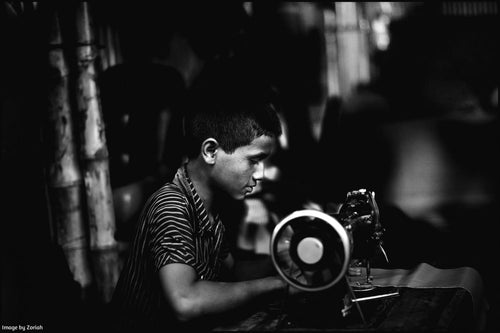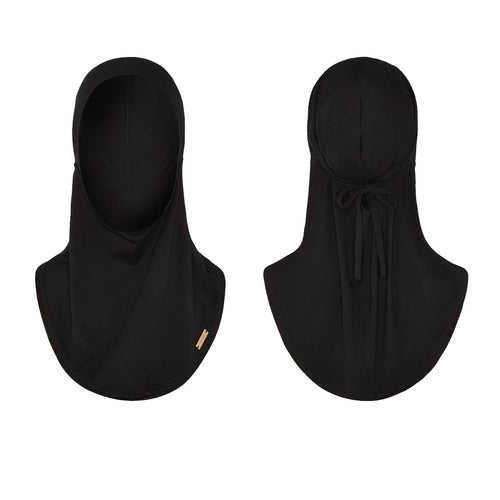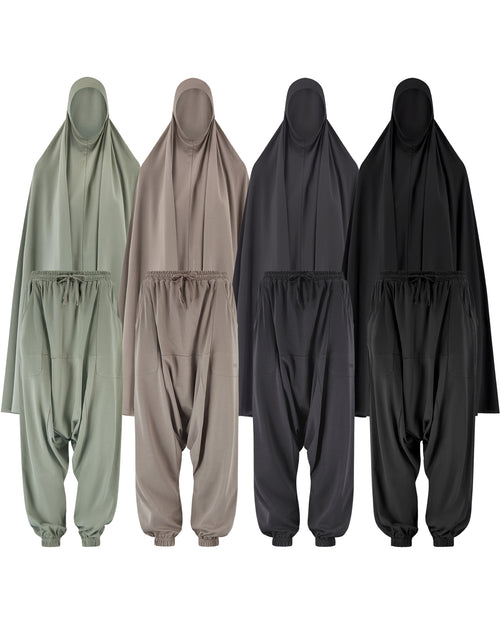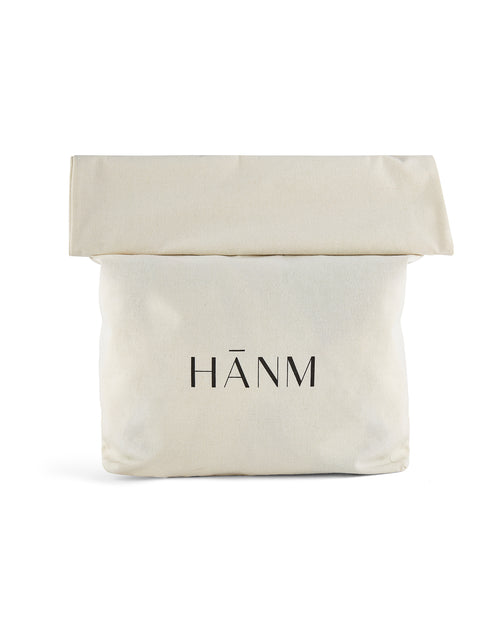
written by HĀNM | March 2019
Child labour is forbidden by law in most areas of the world, however it continues to be prevalent within some of the worlds poorest countries... and this is where the problem stands.
In countries such as Bangladesh for example, where the most recent poverty rate was recorded at 24.3%, young boys and girls are willing to work for less in order to earn for their families. They are lured into factories under false promises of one day earning a decent wage. They sadly never do, as it was never really the case. Yet their financial situations have them stuck with factories owners that verbally and physically abuse them should they do something wrong.
In the below video footage, you can watch 11 year old Halima's interview as she describes her working conditions and what she is expected to consider a salary. She earns 53 cent a day totalling to a mere $3.20 for a week. Is that even enough to buy a few sweets in the UK or any where else for that matter? She says "The salary I get is not fair." We agree Halima, what does such a small sum even buy you.
Halima goes on to explain how she is beaten and shouted at if she is ever absent from work. She describes being slapped with force across her face, as well as being expected to clean 150 pieces of underwear per hour... yes, PER HOUR. The poor child works the whole day, and who knows what hours they have set for her as a working day. Garment workers are often forced to work 14 to 16 hours a day, 7 days a week. During peak season, they may work until 2 or 3 am to meet the fashion brand's deadline. Their basic wages are so low that they cannot refuse overtime - aside from the fact that many would be fired if they refused to work overtime. In some cases, overtime is not even paid at all.
"I feel very tired and exhausted." 11 year old Halima says.
Here we have a vicious cycle occurring, where consumers mainly from the western world, seek clothing for nothing, more commonly referred to as the 'fast fashion industry.' Big fashion businesses then seek cheap labour to produce their ranges, which they can then sell to such consumers, making a nice profit as they order huge quantities... For those that don't know, the more pieces you manufacture, the cheaper the price. Then we have right in the middle of this cycle, with very limited choices, the poverty stricken civilian that needs to feed their starving families, which in this case, is a poor child. Due to their unfortunate financial situations, children are willing to work for very low pay, even at the risk of their safety. Some have suggested that their employment can be compared to modern day slavery.
Well known high street brands including H&M, Zara, Adidas and Nike have used manufacturers who have subsequently been exposed as using children to work in unsafe conditions.

Above: A child labourer in Dhaka, Bangladesh on machinery that could prove dangerous.
The fast fashion industry has created a cycle of greed & morality, rapidly spinning in the same circle around the poor. Yet customers still demand cheaper prices. Why? we ask. As a brand, we believe consumers must educate themselves as to how those low prices arrive in your stores. Ethical production costs companies money because everyone is paid and treated like a human being, how it should be.
Huge businesses and retail chains, can sell you cheaper clothing because their production costs are lower when using factories that employ children to do the labour. What is $3.20 per week for 1 worker? nothing really. It doesn't break the bank of the factory owner and it certainly is not breaking the budget of big businesses who are placing their orders in the thousands.

Above: Our clothing collection from our 2019 rebrand.
Here at HĀNM, we refuse to profit off the poor to deliver a lower price tag. As much as we appreciate the support of all our customers, we will not discard our ethics as a brand.
We stand firm as a brand for fair treatment and pay, throughout the creative process. We refuse to be apart of the fast fashion culture we live in today, where consumers want clothing at cheap prices, every week with little to no value for the item they are purchasing. We don't want to be apart of the modern days world throw away culture. We're a slow fashion brand.
For our clothing line, we have sourced beautiful fabrics which consist of silks, herringbone patterned linen & cotton to bring our customer something new that we haven't seen in the modest fashion market. Our clothing has all been designed in-house and the fabrics we have used for our clothing line are of beautiful textures and quality.
We can confidently reassure our customers, that unlike Halima's and many other children's working conditions, our clothing was produced ethically here in London, and everyone was treated and paid fairly.











 UAE Store
UAE Store
 UK Store
UK Store